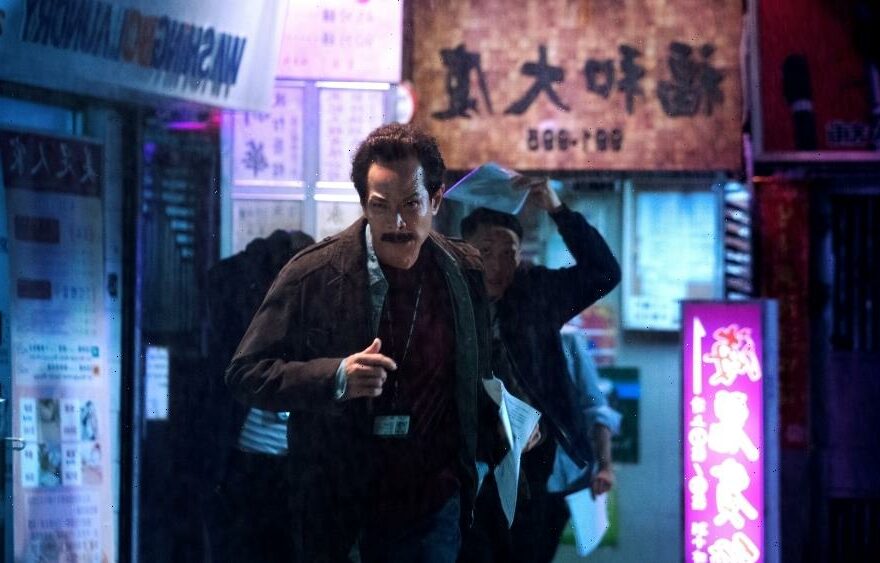The Berlin Film Festival is once again finding house room for Hong Kong’s most commercially successful enfant terrible, Soi Cheang, aka Cheang Pou Soi, who previously brought film noir “Limbo” to the Berlinale.
This time he attends with “Mad Fate,” a film about destiny that may be Cheang’s most bloodthirsty, but which the director says is intended to be inspirational. It plays in the Berlinale Special section.
Born in Macau, Cheang developed his career at the feet of Ringo Lam, Andrew Lau, Joe Ma, Wilson Yip and Johnnie To, the great stylists of the crime and action film genre across the Pearl River estuary in Hong Kong. To, who is on the Berlin jury this year, is also a producer on “Mad Fate” through his Makerville label.
“Essentially the story is about a fortune teller who meets a young man who has this really strong desire to commit murder. So, whether it’s for his own redemption or to save the kid, he really wants to change the course of fate. And in that process, they end up sort of changing each other,” Cheang told Variety.
The original pitch for the story came from Yau Nai-hoi, a veteran of Milky Way Image and To’s cluster of regular partners, and who here is credited as producer and screenwriter.
“I had come up with the idea for this film back in 2008. I wanted to do a film about a murderer and the law of coincidences that lead to a murder. I looked different setups, but Milky Way has already done many crime films like that, touching on faith and coincidences. So, instead, I came up with this odd setting of a fortune teller or a Fung Shui master who uses all his wisdom and knowledge about Fung Shui and metaphysics to help this born psychopath,” Yau told Variety.
Cheang says that the story was not influenced by COVID, but that the production process was. Much of filming was done in secret as it took place at a time when Hong Kong had particularly tough disease control measures. “We hid out in the studio. We didn’t want people to give us a hard time,” Cheang joked.
“The story is from Nai Hoi, my take on this is that [while] we can’t change fate – fate has already set its path – what we can change is how we face up to fate. What attitude we take.”
Pinning Cheang down to any genre has always been hard.
“Cheang is a key figure among Hong Kong’s post-1997 generation of filmmakers and notable for his somber but unmistakably personal visual style,” said Albert Lee, director of the Hong Kong International Film Festival, which this year will program a ten-film tribute to the director. “He seldom deviates from mainstream storytelling conventions but innovatively explores new boundaries of filmmaking across different genres, from horror and thriller to action films. In the stark dystopia he creates, where one confronts moral bleakness and human perseverance, [Cheang] never fails to detect a ray of hope.”

“Mad Fate” is no exception. “At first it felt from the story that it might be a bunch of say bloodthirsty parts, and parts of it are pretty gory. But as I was making it, I realized it doesn’t follow the style of any of my previous films. It is hard to categorize – there’s a bit of thriller, there’s a murder mystery, even paranormal elements – and through the whole process it was about how to wrangle all those genres into this one film,” said Cheang. “[Yau] always told me to avoid genre labels. I sensed that this is supposed to be inspirational. So, it’s actually my first inspirational film,” Cheang said. “By the end of the process, I actually feel quite satisfied, how nice it is to have a crazy imagination.”
That may come in handy as Hong Kong authorities put more restrictions around the city’s once freewheeling film industry.
“I’m not gonna lie that there are certainly going to be restrictions, but I think Hong Kong people are very smart. They will find new ways to say what they want to say. That’s the thing about creativity. We’ve always had restrictions or boundaries. But I think perhaps that these can lead us to create some really great things,” said Cheang.
Read More About:
Source: Read Full Article
